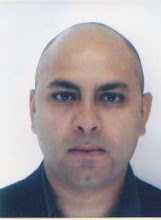

A Mr. 'Che' Guevara seems to be the talk of the town at the moment. Che part 1 was just released in the UK although it hasn't risen to the top of the box office charts as may have been expected. Simon Mayo and Mark Kermode's BBC Radio 5 Live show talked about it for about five seconds in their latest podcast which all came as a bit of a surprise. Elsewhere though it has done well, Benicio Del Toro already winner of the best actor award at Cannes.
Bearing in mind this is Che: Part 1 we see elements of his earlier life before the Cuban Revolution and before he matures into a real revolutionary. Soderbergh films it beautifully and at times humourously. Del Toro encapsulates what most who have studied/read/watched Che Guevara imagine to be the essence of the Argentine - physically but also in diction. There was no fairytale script in this film like in 'Motorcycle Diaries' although contrasting the films is useful and probably justified since we would be analysing two disparate chapters in his life. Che: Part 1 was no epic take on Guevara, it served to clarify what many misinterpret about his life and his ideologies. In my opinion, there was no obvious political undertone apart from an overt hatred, on the protagonists’ part, to an imperialistic United States. We were repeatedly reminded of this in cross scenes in black and white, imitating Guevara's speeches in the UN embassy. There isn't much to criticise really, it came across as an honest representation of the early revolutionary.
Nonetheless, it was interesting that the film emulated Fidel's first meeting with Che Guevara in 55' if i remember correctly but failed to explain how Che got there, in Mexico City. From Motorcycle Diaries to Che: Part 1 - 1952 -1955 there is a three-year gap that is ignored. Is your ordinary Joe supposed to think that Guevara went to a leprosy "colony" (as described in the film), visits Peru and sees the damage caused by the Spanish conquistadores on the Incas and then suddenly ends up in Mexico City in the presence of influential progressive Cubans? And whatever happened to Alberto?!
To fill this void, it would make sense to mention Guatemala and the Moncada barrack attacks. In '53 Guevara was in Costa Rica, working as a doctor and while he was there he met survivors of the Moncada attacks. The attacks were led by Fidel Castro and his amigos, revolting against the military coup of the Fulgencio Batista camp. From there he moved onto nearby Guatemala, intrigued by the peaceful transition from military junta to democratic elections, initially led by Juan José Arévalo's government between '45 to 51' and then continued on by socialist Jacobo Arbenz when Guevara entered the country. However it was when Arbenz was in power that this democratic movement came to an extreme halt with a military coup led by Colonel Castillo Armas and backed by the CIA. In short the latter were upset about agrarian reforms and having to pay taxes (American companies like United Fruit Company) owned vast amounts of land in Central America.
As a result they supported a military turn around in Guatemala and Arbenz resigned. The nature of this event, buoyed by Guevara's keen literary interest in the political theories behind Marxism and the nurturing of a friendship with another Moncada survivor (named Nico Lopez), Guevara began to get a feel for politics in Latin America and US common intervention. These events accompanied with his own ideas and those that surrounded him meant when he followed on to Mexico City, the character portrayed in the film - coy more than naive- and politically-astute, begins to make more sense.
I imagine the second film will have tested the producers a lot more than the first, primarily because a lot less has been documented on Guevara's later years. Most of which that has been published stems from Ocean Press Publishing Press - an Australian publishing press that agreed to take on the 'Che Guevara Publishing Project' which is a collaboration with the 'Che Guevara Studies Centre in Havana' headed by widow Aleida Guevara and most probably funded by the Castro regime. Therefore the legitimacy of what is published remains skeptical.
Finally, it comes as little of a shock that Jon Lee Anderson was the chief consultant for the first film: he is the author of the most complete book on Guevara, entitled 'Che Guevara: A Revolutionary Life.' For those of you who are just interested in learning a tad more about Guevara and don't want to indulge in such a detailed book then I personally recommend 'Che Guevara and the Cuban Revolution' written by Mike Gonzalez. It is a wonderfully clear and concise book, less than 200 pages and one of the best biographies I have read on the man we all call Che.
Thoughts on the film?

No comments:
Post a Comment